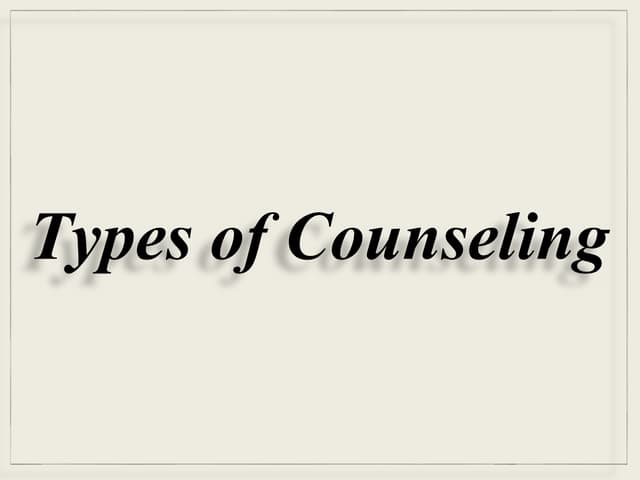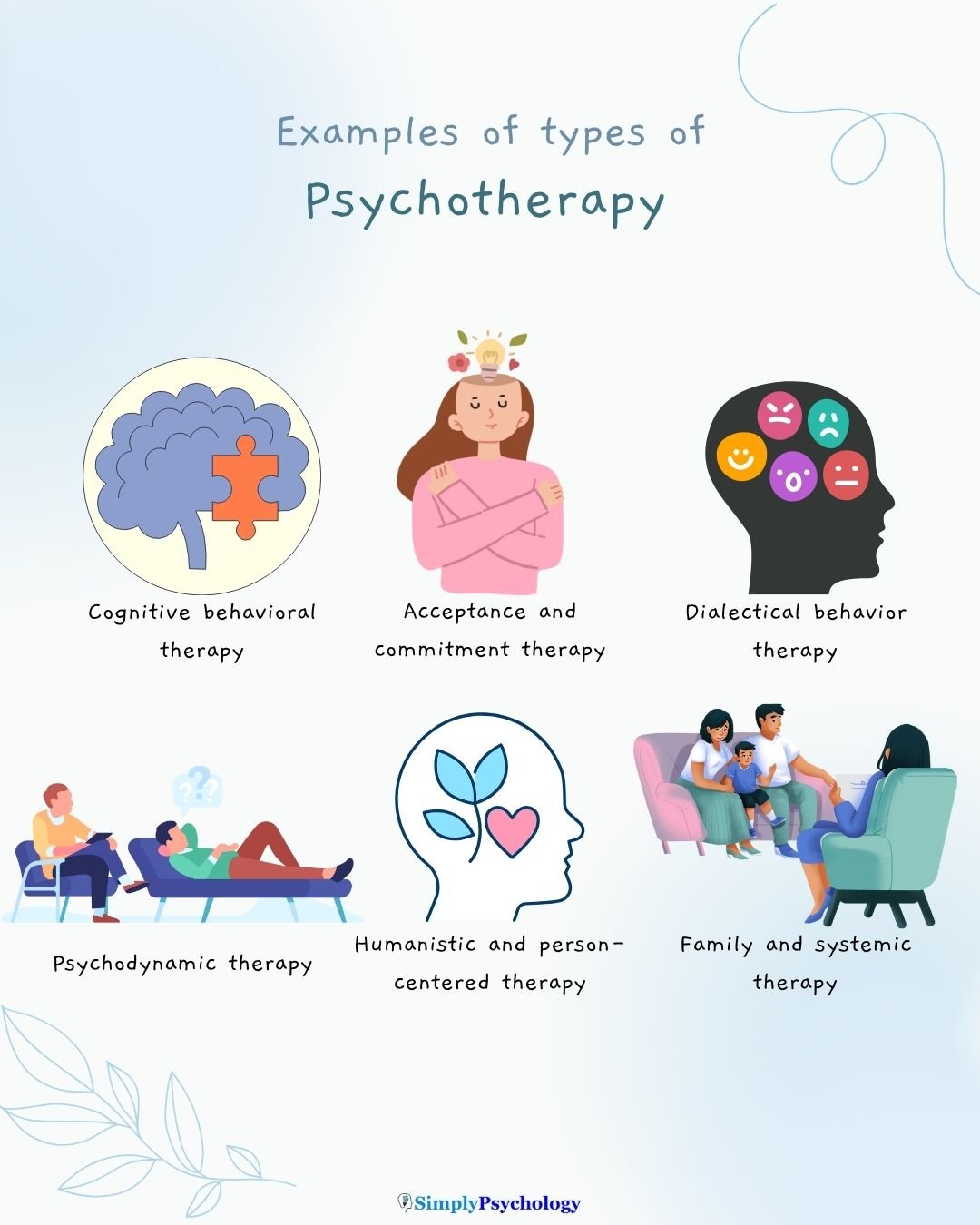A Comprehensive Guide to the Different Kinds of Therapy and Their Effect
Counseling includes a range of restorative techniques, each made to fulfill special psychological health requirements. From the organized techniques of Cognitive-Behavioral Therapy to the compassionate nature of Person-Centered Therapy, these modalities use unique pathways to personal growth. Family members therapy and Dialectical Habits Therapy provide added frameworks for recovery, while team counseling promotes neighborhood support. Comprehending these diverse techniques can illuminate their extensive influence on individual well-being. What remains to be explored are the complexities of each strategy.

Recognizing Cognitive-Behavioral Therapy (CBT)
Although numerous therapeutic strategies exist, Cognitive-Behavioral Therapy (CBT) stands apart as a result of its organized, ambitious nature. This type of therapy is based on the facility that thoughts, sensations, and actions are adjoined, and by changing negative thought patterns, people can modify their psychological feedbacks and activities. CBT uses various methods, such as cognitive restructuring, which helps clients recognize and challenge distorted beliefs. Behavior activation urges engagement in pleasant activities to deal with anxiety.
Commonly, CBT is a temporary therapy, typically long lasting in between 12 to 20 sessions, making it obtainable for those looking for quick outcomes. Its performance has actually been well-documented in dealing with anxiousness conditions, anxiety, and other psychological wellness concerns. The specialist's duty is to assist customers via exercises and research assignments, promoting self-awareness and promoting lasting coping techniques. This functional method empowers individuals to take control of their mental wellness, eventually bring about enhanced life satisfaction.
Checking Out Person-Centered Therapy
Person-Centered Treatment, established by Carl Rogers, supplies a different method to Cognitive-Behavioral Treatment by highlighting the client's subjective experience. This therapeutic model focuses on the person's perspective, cultivating an atmosphere of compassion, unconditional positive regard, and credibility. By allowing clients to discover their sensations and thoughts without judgment, specialists help with personal growth and self-discovery.
The core tenet of Person-Centered Therapy is the idea that individuals possess the intrinsic capability for self-healing and individual development. In this setting, the specialist functions as an encouraging overview as opposed to a regulation authority, motivating clients to take fee of their very own journey. This strategy is especially efficient for those grappling with concerns such as reduced self-confidence, anxiousness, or anxiety, as it empowers them to face and comprehend their feelings. Ultimately, Person-Centered Treatment grows a strong restorative partnership, cultivating trust fund and openness essential for meaningful change.
The Role of Family Therapy in Recovery
Household therapy works as a crucial part in the recovery procedure for individuals and their relationships. This therapeutic method concentrates on improving interaction, settling problems, and cultivating much deeper links among family members. By resolving inefficient characteristics, household treatment encourages each participant to express their thoughts and feelings in a risk-free environment, advertising understanding and compassion.

The effect of family treatment prolongs beyond the sessions, as boosted connections can lead to enhanced emotional health for all entailed. Overall, family therapy plays a vital duty in recovery by fostering unity, durability, and mutual assistance amongst relative, ultimately assisting them toward a healthier, more satisfying life together.
Unloading Dialectical Behavior Modification (DBT)
Structure on the structure of healing methods that improve psychological well-being, Dialectical Behavior modification (DBT) supplies an organized framework for people dealing with extreme feelings and behavior obstacles. Established by Marsha Linehan, DBT incorporates cognitive-behavioral techniques with mindfulness techniques, intending to assist clients manage frustrating sensations and enhance social efficiency.
The therapy is specifically beneficial for those identified with Borderline Personality Problem however is likewise suitable to a variety of various other psychological wellness concerns. virtual therapy. DBT is composed of private therapy sessions and skills training groups, focusing on four essential ability collections: mindfulness, distress tolerance, feeling regulation, and interpersonal performance
The Advantages of Group Counselling Sessions
While specific therapy supplies valuable insights, group therapy sessions supply unique advantages that can significantly boost the healing experience. One essential benefit is the sense of neighborhood that arises amongst participants. People frequently discover convenience in sharing their experiences with others dealing with similar difficulties, fostering a helpful environment that lowers feelings of seclusion.
Team sessions encourage diverse point of views, allowing participants to discover from each various other's coping strategies and insights. This cumulative knowledge can bring about enhanced analytical abilities and a wider understanding of personal issues.
Additionally, group counseling commonly promotes accountability, as participants encourage one an additional to pursue their goals and comply with their dedications. The cost-effectiveness website of team treatment makes it an easily accessible choice for lots of people seeking support. In general, the collective nature of group therapy sessions can greatly improve the restorative trip.
Often Asked Concerns
What Qualifications Do Specialists Required to Exercise Counseling?
Therapists typically call for an appropriate degree in psychology or counseling, along with monitored scientific experience. Additionally, they must obtain proper licensure or certification to practice lawfully, guaranteeing adherence to expert criteria and ethical standards.
Exactly how Do I Select the Right Kind of Therapy for Me?
Selecting the ideal sort of therapy entails examining personal needs, discovering different approaches, taking into consideration specialist specialties, and looking for suggestions. Understanding specific goals and choices can considerably enhance the performance and complete satisfaction of the healing experience.

Are Online Counseling Sessions as Effective as In-Person Ones?
The efficiency of on-line therapy sessions contrasted to in-person ones typically relies on specific preferences and circumstances. Research study suggests that both techniques can generate favorable end results, though some might locate greater convenience in face-to-face interactions.
How Long Does Counseling Usually Last?

What Should I Anticipate During My First Therapy Session?
During the first therapy session, customers can expect an introduction, conversation of their worries, establishment of goals, and an introduction of the counseling process - low cost therapy. This initial conference aims to construct relationship and assurance convenience